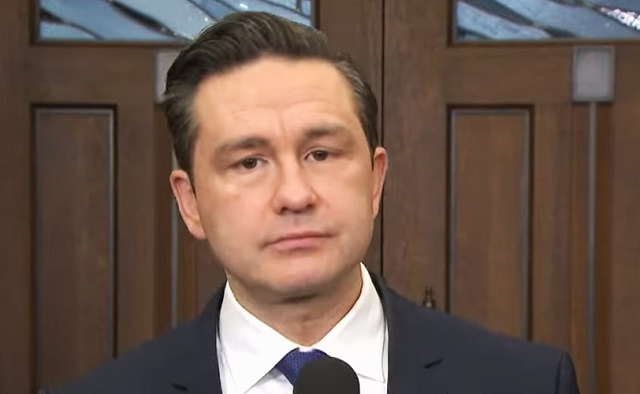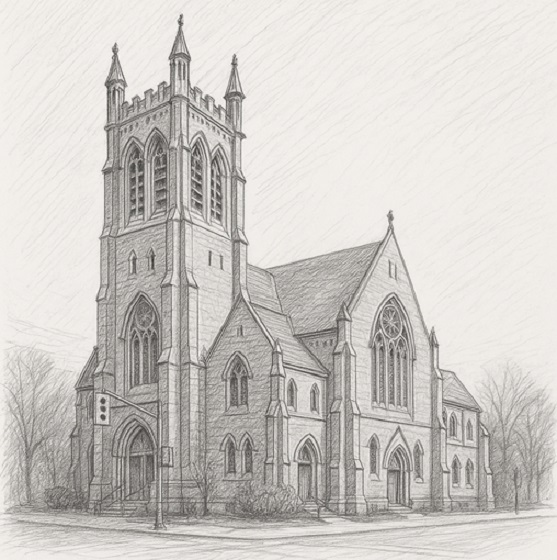National
Poilievre urges NDP leader Singh to pull support from Trudeau, force fall election

From LifeSiteNews
The leader of Canada’s Conservative Party, Pierre Poilievre, has asked the head of the New Democratic Party (NDP) Jagmeet Singh to pull his support for Prime Minister Justin Trudeau’s Liberals to trigger a fall election, as Canadians “can’t afford or even endure another year of this costly coalition.”
The letter, released on X Thursday by Poilievre, states that “Canadians can’t afford or even endure another year of this costly coalition.”
Sellout @theJagmeetSingh signed on with Trudeau to secure his pension.
Now you’re stuck paying the bill, with higher taxes, double the housing costs, and crime and chaos.
Sign to tell #SelloutSingh to vote down Trudeau and give Canadians the carbon tax election they want:… pic.twitter.com/fxcU7svlp9
— Pierre Poilievre (@PierrePoilievre) August 29, 2024
“No one voted for you to keep Trudeau in power,” Poilievre wrote, referencing Singh’s informal coalition with the Trudeau government that began last year, in which the NDP leader agreed to keep the Liberals in power until the next election is mandated by law in 2025. “You do not have a mandate to drag out his government another year.”
Poilievre called upon Singh to pull his support for Trudeau, so that Canadians can soon go to the polls in a general election.
“Mr. Singh, I know that you are eager to avoid an election so that you can qualify for your $2.2 million taxpayer-funded pension in February, but it’s time for you to put the people before your pension,” he wrote.
“Pull out of the costly coalition and vote non-confidence in the government this September to trigger a carbon tax election in October of THIS YEAR. Or you will forever be known as ‘Sellout Singh.’”
As reported by LifeSiteNews, the Trudeau Liberals are looking to delay the 2025 federal election by a few extra days in what many see as a stunt to try and secure pensions for MPs who are projected to lose their seats. Approximately 80 MPs would qualify for their pensions should they sit as MPs until at least October 27, 2025, which is the newly proposed election date. The election date as it stands now is set to happen on October 20, 2025.
House leader for the NDP, Peter Julian, in reply to Poilievre’s request to Singh, noted that “leaving the deal is always on the table for Jagmeet Singh.”
As for Poilievre, he called out the fact that Singh earlier this year “supported Trudeau’s decision to hike his carbon tax by 23 percent, as part of his plan to hike the tax by 300% by 2030.”
“You helped Trudeau pass his budget that poured $60 billion of wasteful spending onto the inflationary fire,” he noted.
LifeSiteNews, in a recent opinion piece by this writer, observed that most of the recent polling shows that if a federal election were held today, “Pierre Poilievre’s Conservative Party would not only mop the floor of the House of Commons of most Liberal MPs but wash the windows of the house on Parliament Hill as well with a tint of conservative blue.”
“Canada is being held hostage by a pro-abortion, anti-life socialist party (Singh’s NDP) that currently represents only seven percent of the electable seats in the House of Commons, a surprising fact and a sobering reminder of how the parliamentarian process that governs the nation is flawed in many ways,” reads the commentary piece.
As for Singh, he recently said his support for the Trudeau government, which is keeping the Liberals in power, would crumble unless the prime minister introduced pharmacare legislation before March.
National
Politically Connected Canadian Weed Sellers Push Back in B.C. Court, Seek Distance from Convicted Heroin Trafficker

Case sprawls from Pakistan’s chemical-precursor labs to Vancouver’s cannabis fields and law offices.
A high-stakes North American legal battle—centering on a politically connected Sikh-Canadian businessman at the collision point of Canada’s regulated cannabis sector and what U.S. authorities call a “multiyear, multinational attack” on American markets—and two estranged Vancouver brothers, one a convicted heroin trafficker and the other a cannabis cultivator alleging he was cut out of a Health Canada–licensed venture—has taken a turn in B.C. Supreme Court.
In one action, Emerald Health Sciences and related parties—including former British Columbia physician Avtar Singh Dhillon—have denied allegations by Krishansarup “Kris” Kallu, an estranged relative who says the company was structured to enrich insiders later charged by the U.S. government and to conceal key investors with deep narcotics ties that extend to chemical-precursor labs in Pakistan’s northern mountains—including his brother, Yadvinder “Yad” Kallu.
Dhillon—a British Columbia–educated physician and Sikh community leader now based in California—has long displayed deep political proximity in Canada; among the images circulating online is a photo of his niece with Prime Minister Justin Trudeau.
As Emerald Health stepped back from Dr. Dhillon—later drawn into an SEC case describing his role, along with West Vancouver lawyer Fred Sharp, in a one-billion-dollar stock-fraud network as a “multiyear, multinational attack” on American markets—his former Emerald partners filed a civil indemnity claim in September 2025 to create legal distance from Yadvinder Kallu.
In plain terms, the former executives deny the allegations against Emerald and argue that, if anything improper occurred—which they do not admit—legal responsibility must rest with Yadvinder Kallu alone.
Kris Kallu’s suit centers on the claim that his cousin Avtar Dhillon, Emerald Health Sciences, and Fred Sharp sit at the core of the network targeted by the United States government. He alleges that Sharp and Avtar Dhillon “are the true, direct or indirect controllers of Emerald Health Sciences,” and that “Sharp and [Avtar Dhillon] have been close business associates for many years.”
Kallu’s filings allege that individuals facing fraud charges in United States proceedings were among Emerald Health’s early investors.
They also state that Emerald Health Sciences had more than 200 shareholders on a confidential register maintained in Vancouver by the Canadian law firm Bennett Jones. The Bureau has previously reported on the firm’s ties to Liberal Party figures, and that former British Columbia premier Christy Clark has served as a senior adviser in the firm’s Vancouver office.
The Bureau’s reporting also included reviewing thousands of North American court filings and mapping financial networks tied to that legal share register—networks that span the Western Hemisphere and, through Yad Kallu’s historic narcotics activity, intersect with politically consequential narco-trafficking corridors in northern India and Pakistan.
Kris Kallu’s allegations are blunt: they suggest Emerald Health grew from a poisoned root—an effort to work around his brother Yad’s transnational trafficking history—while a polished corporate vehicle, including the Bennett Jones confidential share register, was built. He alleges that register ultimately benefited suspects tied to the Fred Sharp network.
In a revealing September 2021 email to another Dhillon family member—referring to news of U.S. government charges against the Fred Sharp network—Kallu wrote, according to his affidavit: “I find it very alarming as the key players that are being charged with fraud, money laundering, etc. are also invested in Emerald Health Sciences. I am curious how these investors were provided the opportunity to invest, given this is a private cannabis company and all investors were handpicked.”
According to Dhillon’s testimony in Boston as a cooperating witness, Sharp’s group would merge private companies run by hidden Vancouver investors into publicly traded companies, hire writers to fraudulently tout the companies in order to pump up prices, then sell shares to everyday investors—who were left holding deflated assets. Afterward, the conspirators laundered their proceeds. Key players got cash payments, part of a sprawling stock-fraud scheme allegedly tied to cannabis and biotech firms, shell entities, and a network of shadowy Western Hemisphere control groups.
During his testimony, Dhillon described one Vancouver exchange: “Once those shares were sold, I was in communication with (one of the Fred Sharp actors) about receiving some of the funds, and (the actor) offered and said, ‘Would you like to receive them in cash?’ And I said, ‘Certainly.’” Elaborating further, he said, “(The actor) personally delivered cash to me—usually at a restaurant.” When asked why he preferred cash, Dhillon was candid: “To hide it.”
Tracking further back in the B.C. Supreme Court record, Kris Kallu’s filings reach to Health Canada’s medical-marijuana program to explain how the business took root.
“In 2010, I completed an application form to obtain a designated growing licence,” his affidavit states, describing an effort to gain expertise ahead of regulatory changes. Because his brother Yad carried a trafficking conviction, Kris says the family devised a workaround: “As part of the application process, you had to pass a criminal background check. Yad had a criminal record for drug trafficking, so it was agreed that I would formally apply to become a designated grower for a patient who had a license for 99 plants.”
By 2013, he says, both Yad and their mother held sizeable medical-marijuana licences. He alleges that when Emerald Health was formed, he was told to route share-purchase funds through his mother’s bank account and later learned that some shares were allocated to David Nair, a co-defendant in Yad’s earlier criminal case. The criminal history cited by Kris Kallu relates to Yad Kallu’s involvement in a late-1990s joint DEA–RCMP probe ending with United States federal sentences after a California heroin deal.
B.C. Supreme Court findings describe a DEA operation that implicated Yad Kallu and Vancouver underworld figure Ranjit Singh Cheema, who was extradited to the United States for allegedly planning to import 200 kilograms of heroin and 4,000 kilograms of hashish from Pakistan. Cheema’s Canadian faction reportedly negotiated with Colombian cartels, bartering heroin for 800 kilograms of cocaine. Central to the probe was Mohammed Yusuf Khan, a former Pakistani military officer turned DEA asset, who facilitated the heroin transactions for Cheema’s network while working with RCMP liaisons.
The sting had deep U.S. intelligence roots.
According to a March 20, 1997 debrief by DEA Islamabad personnel—cited in Canadian court records—Mohammed Yusuf Khan told agents he had been approached by Mohamed Shafiq, a retired Pakistani army major and owner of Karam Associates, a chemical importer in Lahore. Khan said Shafiq “routinely diverts acetic anhydride to traffickers” operating in Pakistan’s Northwest Frontier Province—an essential precursor for heroin production—and that the pair were arranging a shipment of approximately 200 kilograms of Southwest Asia white heroin and up to four tons of hashish destined for North America.
Khan reported that Shafiq had already contacted a lab operator in northern Pakistan to stage the heroin for export. Initially, Shafiq “desired that the shipment be sent to Vancouver,” but Khan—who was also in contact with RCMP liaisons and aware of recent Canadian court decisions restricting controlled deliveries—refused to facilitate a Canadian entry. The plan shifted to Los Angeles, where Shafiq “had people in place who could take custody of the load and arrange its distribution.”
After U.S. visas were denied to both Shafiq and Khan, Khan offered to travel to Canada on his own—he held a multiple-entry Canadian visa—to meet “affiliated Canadians” and identify the U.S.-side recipients.
Meanwhile, in B.C. court filings, Emerald Health Sciences denies that Emerald was a conduit for undisclosed payments or a vehicle to hide criminal investors and asks the court to dismiss the Kris Kallu suit.
In a separate civil action dated September 11, 2025, five former Emerald Health Sciences figures closely linked to Avtar Dhillon seek protection from Yad Kallu.
Their claim cites the ongoing lawsuit brought by Kris Kallu and seeks indemnity from Yad, asserting that if any losses occurred, they were caused solely by Yad’s acts—not by the other Emerald parties.
But a narrow focus on Canadian court filings and B.C. hearings can distract from the underlying matter—and from the thematic link between Middle Eastern chemical labs and poppy fields and the fertile farmlands of Richmond, B.C., where narcotics have helped fuel a booming export market in Western Canada.
Industrial-scale grow-operation facilities linked to Emerald Health were the focus of Delta Police investigations in 2020, civil-forfeiture records show.
On October 28, 2020, police executed search warrants at multiple Richmond properties; they later described “Project Big Smoke” as the cannabis-production component and “Project Rolling Thunder” as a wider drug-trafficking probe launched in November 2020. Investigators concluded the output from these sites far exceeded the limits of Health Canada licences that Emerald promoted in 2018 through investor materials featuring Members of Parliament Carla Qualtrough and John Aldag, Richmond councillor Alexa Loo and Yad Kallu. Police estimated the facilities could produce roughly 18 million dollars’ worth of cannabis annually.
While cannabis was the primary focus, Delta Police’s “Rolling Thunder” raids—targeting a biker network linked to Emerald-branded marijuana—also uncovered hundreds of individually packaged doses of fentanyl, methamphetamine and crack cocaine, along with approximately one kilogram of powdered cocaine, according to filings in the B.C. Director of Civil Forfeiture’s ongoing case against Emerald-linked properties.
Meanwhile, in his 2023 appearance before a United States jury, Dhillon acknowledged that he agreed to testify against a number of his alleged conspirators, including Sharp, partly to mitigate his sentence. Dhillon testified that he personally earned between six and seven million dollars from these schemes, with proceeds funneled through various means—including offshore accounts in Singapore and Switzerland, cash deliveries, and payments routed through “designees.”
Dhillon’s testimony also illuminated Fred Sharp’s pivotal role in orchestrating these schemes, alleging Sharp established layers of offshore structures to hide beneficial ownership and exploited small-cap and emerging-market companies, including cannabis and biotech firms.
The Bureau is a reader-supported publication.
To receive new posts and support my work, consider becoming a free or paid subscriber.
Business
Quebecers want feds to focus on illegal gun smuggling not gun confiscation

The Canadian Taxpayers Federation released new Leger polling showing that half of Quebecers say the most effective way to reduce gun crime is to crack down on illegal gun smuggling from the United States, not a federal gun ban and confiscation.
“Law enforcement experts say the best way to make Canada safer is to stop illegal gun smuggling and Quebecers say exactly the same thing,” said Nicolas Gagnon, CTF Quebec Director. “It makes no sense to pour hundreds of millions into a confiscation that only takes guns from lawfully licensed gun owners.”
In 2020, the federal government launched its policy to confiscate thousands of so-called “assault-style” firearms from licensed gun owners. Ottawa recently announced a pilot project in Cape Breton to start taking firearms from individual owners.
The Leger poll asked Quebecers what they think is the most effective way to reduce gun crime. Results of the poll show:
- 51 per cent say introducing tougher measures to stop the illegal smuggling of guns into Canada from the United States
- 37 per cent say banning the sale and ownership of many different makes and models of guns along with a government buyback program
- Six per cent say neither of these options
- Seven per cent do not know
The results of the polls arrived as recorded remarks from Public Safety Minister Gary Anandasangaree made headlines in September.
In a leaked audio recording, the minister suggested the confiscation program is being pushed in part because of voters in Quebec, while also expressing doubt that local police services have the resources to enforce it.
Police organizations have long warned Ottawa’s confiscation program is misguided. The RCMP union says it “diverts extremely important personnel, resources, and funding away from addressing the more immediate and growing threat of criminal use of illegal firearms.”
The program was first estimated to cost $200 million. Just providing compensation for the banned guns, not including administrative costs, could cost up to $756 million, according to the Parliamentary Budget Officer.
Premiers of Alberta and Saskatchewan have both publicly said that they would not cooperate with Ottawa’s gun ban. Premier François Legault has stayed silent on this issue.
“Quebecers have been clear: the real problem is illegal gun smuggling, not law-abiding firearms owners,” said Gagnon. “The police have also made it clear the gun confiscation will waste money that could be used to stop criminals from committing gun crimes.
“Legault needs to stand up for Quebec taxpayers and refuse to help implement Ottawa’s costly and ineffective confiscation scheme. The federal government needs to drop this plan and focus its resources on intercepting illegal guns at the border: that’s how you actually make communities safer.”
-

 Business3 hours ago
Business3 hours agoEmission regulations harm Canadians in exchange for no environmental benefit
-

 Business3 hours ago
Business3 hours agoQuebecers want feds to focus on illegal gun smuggling not gun confiscation
-

 Energy24 hours ago
Energy24 hours agoMinus Forty and the Myth of Easy Energy
-

 Uncategorized23 hours ago
Uncategorized23 hours agoNew report warns WHO health rules erode Canada’s democracy and Charter rights
-

 Crime21 hours ago
Crime21 hours agoFrance stunned after thieves loot Louvre of Napoleon’s crown jewels
-

 Frontier Centre for Public Policy1 day ago
Frontier Centre for Public Policy1 day agoOttawa Should Think Twice Before Taxing Churches
-

 Alberta1 day ago
Alberta1 day agoBusting five myths about the Alberta oil sands
-

 Business1 day ago
Business1 day agoUS government buys stakes in two Canadian mining companies










